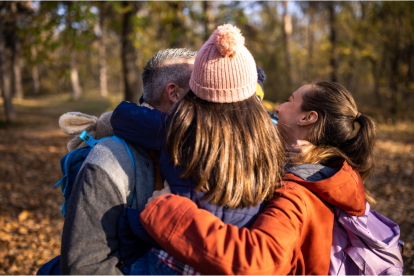
Schizophrenia Therapy and Medication
The most effective treatment for schizophrenia is a combination of using antipsychotic medications and therapeutic and social support. There is no one best treatment for this mental illness that causes hallucinations, delusions, disorganized thoughts, and other symptoms that make life challenging, but most patients respond well to this combination. There are many different medications and types of therapy and support that can be used, and it is important for individuals to try their options and stick with them until a treatment plan that is maximally effective with minimal side effects is found.
Schizophrenia is a serious mental illness that cannot be cured but can be treated effectively for most patients. Schizophrenia can cause a range of symptoms, including hallucinations, delusions, disordered thinking and speaking, unusual behaviors, agitation and irritation, a flat emotional affect, and in some people catatonia.
The symptoms are disruptive and cause significant impairment in several areas, such as social interactions, work, school, and family.
Because schizophrenia causes impairment and is chronic, treatment for this condition is crucial. Each individual is different and responds differently to various treatments, but generally the most effective way to treat schizophrenia is to use a combination of antipsychotic medications and psychosocial approaches.
The latter refers to a combination of therapies, social support, social education, and vocational support.
Diagnosing Schizophrenia
The first step to implementing an effective treatment plan for any mental illness is getting an accurate diagnosis. There are five categories of characteristic symptoms caused by schizophrenia. To be diagnosed with the condition a person must exhibit at least two of them, with at least one being number one, two, or three below. The symptoms must persist for at least a month, cause significant impairment, and not be caused by another condition or drugs. The five symptoms are:
- Delusions. These are false beliefs, like paranoia and suspicion of a friend or conspiracy theories.
- Hallucinations. These can be visual or auditory, like hearing voices that aren’t really there. They may also involve other senses, like touch or taste.
- Disorganized speech. Thoughts that race and jump quickly between subjects leads to confusing speech that is difficult for others to understand.
- Unusual behaviors. Any kind of behavior that is out of the ordinary may be included, but agitation and strange movements are common.
- Negative symptoms. Decreased emotional responses or affect, decreased movement, or even catatonia may be caused by schizophrenia.
A Combination is the Best Treatment for Schizophrenia
According to the American Psychiatric Association, the best practices for treating schizophrenia include using a combination of strategies. Unfortunately, there is no one treatment that is always effective. A combination of approaches, including medications, psychotherapy, social support and family education, vocational and housing support, treatment for co-occurring issues, and sometimes electroconvulsive therapy, is most effective for most patients.
Most people being treated for schizophrenia will respond to this combination, but the specific type of each treatment that is used depends on the individual. For instance, some patients may do better with a first generation antipsychotic than a second generation drug. Some may respond well to cognitive behavioral therapy, while others prefer group therapy. Effective treatment depends on finding the right combination of approaches for each patient.
A patient can be best guided through an effective treatment plan when in a residential setting. Most patients with schizophrenia benefit from intensive inpatient treatment because it provides a safe environment and a period of time in which individuals can dedicate themselves to treatment. It also provides a social setting in which patients can work together and rely on social support.
Medications for Schizophrenia
The type of medication used to treat schizophrenia is a class of drugs called antipsychotics. These treat psychotic symptoms that are characteristic of schizophrenia, possibly by affecting the dopamine system in the brain. There are two classes of antipsychotics: older, first-generation medications, which usually cause more severe side effects, and newer, second-generation drugs that often cause fewer and less severe side effects.
The second generation medications are usually preferred, or at least tried first, because of side effects. The side effects of any of these drugs, but especially with the first-generation medications, can be very serious and impact physical health. They can cause metabolic syndrome, which can lead to type 2 diabetes, weight gain, and high cholesterol and triglyceride levels. The latest guidelines for treatment recommend trying all other drugs before clozapine (Clozaril) and olanzapine (Zyprexa), because these cause the most severe physical side effects.
Treating patients with antipsychotics often requires trying more than one drug or sometimes combinations of drugs. The goal is to use the lowest dose possible to get maximum control of symptoms and the fewest and least severe side effects. To achieve that goal a patient may need to try more than one medication.
Learn to Live Independently With Schizophrenia
Our Unique Treatment Model can Help
Therapeutic Approaches to Treatment
The most recent treatment guidelines for schizophrenia state that medication is not enough to effectively treat the condition and that it must be combined with psychosocial strategies. These include various types of therapy. One of the most effective types of therapy for all kinds of mental health patients is cognitive behavioral therapy, or CBT. It uses mindfulness, goals, and active steps to help patients recognize and normalize abnormal thoughts and behaviors, to practice healthy coping mechanisms, and to have healthier relationships. CBT can be used in individual or group therapy.
Other types of therapy that may help patients with schizophrenia include motivational interviewing, which helps a patient commit to making positive changes, solution-focused therapy, which includes setting and working toward specific goals, and experiential or creative therapies like art, music, or drama therapy, animal therapy, or adventure therapy.
Additional Treatments and Support
The most effective treatment plans for schizophrenia include some elements of medication and therapy, but supplement these two pillars of treatment with additional support. Very important to treating schizophrenia is the inclusion of social support, social skills, and social and family education. This may involve the use of group therapy, support groups, social skills training, and family psychoeducation, working with the family of the patient to learn more about the condition and how to live with and support a loved one.
Addressing and treating secondary issues, a holistic approach, is also important for effective management of schizophrenia. This may include weight loss and healthy eating, to help counteract the side effects of antipsychotics. It also includes addressing smoking cessation, as smoking is common in patients with schizophrenia. Patients may also have co-occurring mental illnesses or other substance use disorders that need to be diagnosed and treated.
Finally, there are support services that can help patients with schizophrenia who are leaving treatment be able to live more independently. This may include vocational and job skills training, taking advantage of housing, transportation, and other social services, and getting involved in the community.
Electroconvulsive Therapy
ECT, or electroconvulsive therapy, is a treatment that is often used for treatment-resistant depression. ECT is a procedure that involves sending small electric currents through the brain, usually while the patient is under general anesthesia. The currents trigger minor seizures, and although exactly why this works is unknown it is thought that the seizures change brain chemistry. There is some stigma attached to ECT, because in its early days it was used with high current levels and without anesthesia. Early patients suffered serious side effects, including memory loss. The electrical currents used today are much lower and side effects are uncommon.
Recently, it was reported by researchers that ECT is effective for some schizophrenic patients. The recent study investigated 144 patients and found that 77 percent responded well to ECT. The adverse side effects were less than what was expected from comparison with depression patients who underwent ECT. In spite of the research, however, the American Psychiatric Association does not currently recommend ECT as a regular treatment and states that more research is needed. It may be considered for treatment in patients who do not respond well to medications.
Treatment-Resistant Schizophrenia
Unfortunately, there are some patients with schizophrenia whose symptoms don’t respond to treatment. Approximately 10 to 30 percent of those diagnosed will develop treatment-resistant schizophrenia and struggle to get relief using the treatments that are effective for most patients. Researchers have found that the second generation antipsychotic clozapine is most effective for these difficult-to-treat patients. It has a 30 percent success rate in reducing symptoms in treatment-resistant schizophrenia as compared to just four percent with other antipsychotics.
How Long Does Treatment Take?
Treatment for schizophrenia is complex and multi-faceted. How long it takes to help a patient stabilize and maintain minimal symptoms and good overall function depends on individual factors, like commitment to treatment, severity of the illness, and others. Most patients benefit from a long-term stay in a residential facility and from receiving several weeks to months of intensive inpatient care. Even after this treatment, maintenance requires ongoing outpatient care, often for the rest of a person’s life.
The most effective treatment for schizophrenia is the combination of strategies that provides each individual with the greatest symptom relief, maximum restored function, and minimal side effects. This almost always includes medications and therapy, but good treatment can also include other treatments, support, and education.






